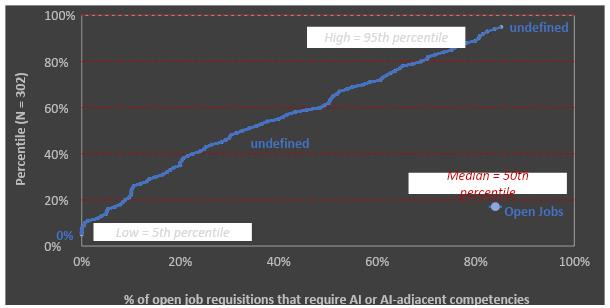

November 8 The research institution of the University of Aberdeen in the UK has delved into the transformation of AI and announced surprising employment results in its latest research Impact data.
How will AI affect employee employment?
Here are some of the findings from research conducted in Aberdeen, based on feedback from around 350 organizations participating in the AI programme. The survey shows that contrary to concerns that AI will replace everyone, the number of jobs created by AI is currently increasing:
• 37% of respondents’ organizations have increased headcount in the past 12 months .
More than 60% of respondents expect the number of employees to increase in the next 12 months
In the past 12 months, only 17% of respondents said their company The number of employees has decreased
Only 3.5% of respondents believe that artificial intelligence is the main reason for layoffs
At the same time, Figure 1 shows that a large proportion (ranging from 0% to 85% (median 32.6%) of open recruitments require candidates to have AI or AI-related capabilities, such as machine learning and data science

in open In recruiting, a large proportion of companies list AI or AI-related capabilities (such as machine learning and data science) as job requirements, as shown in Figure 1
As Aberdeen reported in the study As emphasized, each organization’s path to AI development is different. Aberdeen’s analysis of AI infrastructure and AI talent maturity clearly shows that there are multiple paths to achieving high levels of AI maturity in both areas:
•About one-third of organizations adopt a technology-first approach, allowing employees to adapt as they improve their AI capabilities.
•In contrast, 15% of organizations take a human-centered approach, preparing employees to adopt AI technology training before investing in solutions.
Over 50% of respondents plan to achieve their AI goals by balancing investments in infrastructure and people
The above is the detailed content of The impact of enterprise AI on employment: Where will it be in 2023?. For more information, please follow other related articles on the PHP Chinese website!




